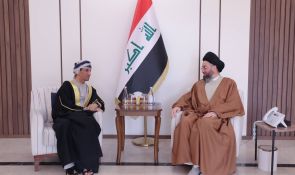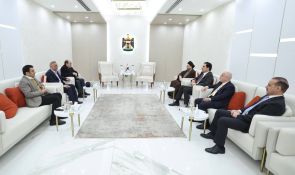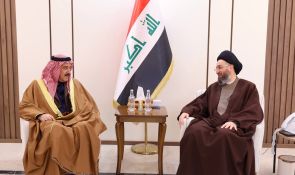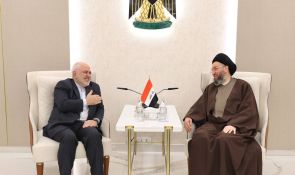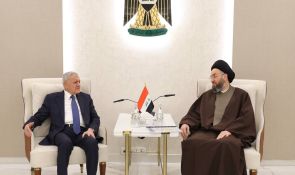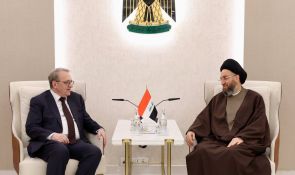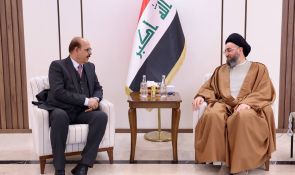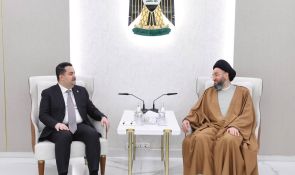Sayyid Al-Hakeem: The national majority, with its current proposal, faces social components’ representation preservation problem, lack of opposition’s natural environment
In his meeting with the Sheikhs and dignitaries of Najaf Al-Ashraf in the guest-place of Sheikh Majid al-Jashaami on 12/5/2022, Sayyid Ammar Al-Hakeem, head of Al-Hikma National Movement Alliance, recalled the immortal journey of sacrifices and heroisms offered by this holy city in the fight against dictatorship and terrorism, referring to the historical trilogy that preserved Iraq and its social reality is represented by the blessed Religious Reference, the Husseini rituals, and the Iraqi clans.
His Eminence indicated that Iraq has witnessed qualitative leaps at the service, social, political, and economic levels, but these steps remain below the level of ambition compared to the capabilities, wealth, and sacrifices that were offered, referring to some of the features of the current political crisis in that it did not take on a sectarian, national, or ethnic guise, and remained within its political framework. This is considered a development compared to previous crises, as well as the peaceful objection to the results of the elections and the paths of the first session. One of its other features is acceptance of the outcomes of the Iraqi state institutions and the Iraqi judiciary despite the lack of conviction in some of them. Added to that is the decline of exterior interference with the continuation of dialogue among all of the parties despite the differences of views between political forces.
His Eminence said that all the proposals of the current stage contribute to the development of the political system and the increase in popular political awareness, which is gradually rising and interacting, stressing that the national majority represents a proposal and concept adopted by many political blocs, including Al-Hikma National Movement at an earlier time, but the national majority that is presented currently faces the problem of ensuring representation of the social components, including the largest social component, noting that talking about preserving the rights of the components is not factional, sectarian or regional, but rather a social fact that any political system needs to achieve stability.
His Eminence indicated that the second problem is represented in the lack of a natural environment for the opposition by granting it the presidency of parliamentary committees and independent oversight bodies or its right to control and access to information. The governing powers must provide a guarantor environment for the opposition.
His Eminence said about the Food Security Law, that addressing the economic and service reality and controlling price hikes is an absolute necessity, but the enactment of laws that allow caretaker governments to take large, non-daily steps is a precedent that may address the current problem and create space for greater problems solutions in the future and represents a circumvention of legal contexts with Iraq's need to invest the financial abundance in moving the economy and sustaining development work.


